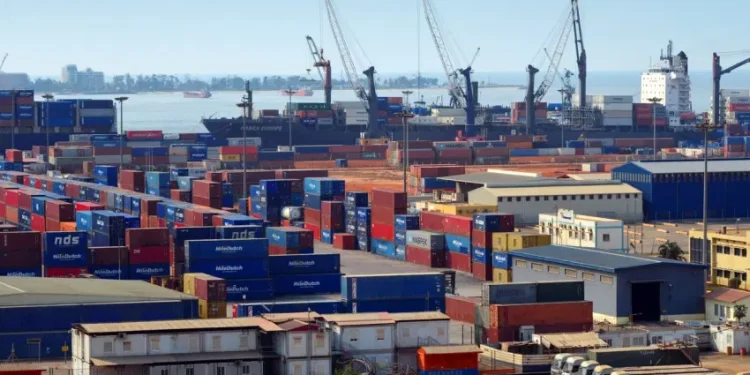The Federal Government has approved a $1 billion modernisation project for the Lagos ports, as part of its wider drive to upgrade Nigeria’s maritime infrastructure and boost competitiveness.
Minister of Marine and Blue Economy, Adegboyega Oyetola, disclosed this yesterday during the 2025 Chartered Institute of Logistics and Transport (CILT) Nigeria Conference held in Lagos. The conference, themed “Enhancing Logistics and Transport for a Sustainable Blue Economy in Nigeria,” focused on the country’s efforts to modernise logistics and transport systems in line with global standards.
Oyetola, represented by the Managing Director of the Nigerian Ports Authority (NPA), Dr. Abubakar Dantsoho, said the ongoing modernisation is designed to upgrade port infrastructure, improve cargo handling efficiency, and expand capacity to meet international benchmarks.
“We are working closely with all stakeholders to achieve a paperless, technology-driven port environment that enhances efficiency, reduces turnaround time, and curbs corruption,” Oyetola said.
The Minister added that beyond Lagos, the government has commenced procurement processes for similar modernisation projects in other seaports across the country to ensure balanced maritime development.
He explained that these initiatives align with the administration’s strategy to strengthen Nigeria’s logistics performance, enhance trade facilitation, and position the country as a preferred hub for maritime investment in Africa.
Oyetola also highlighted the success of the Deep Blue Project, noting that Nigeria has recorded zero piracy incidents in the past three years, a feat that has improved investor confidence and reduced the cost of doing business in the maritime sector.
“Since the inception of the Ministry, we have focused on strategic reform and institutional strengthening. With the Deep Blue Project and other interventions, we are safeguarding our maritime domain to encourage investment,” he stated.
The port modernisation initiative is expected to significantly improve cargo turnaround times, boost revenue generation, and drive economic diversification through a more efficient and secure maritime sector.















